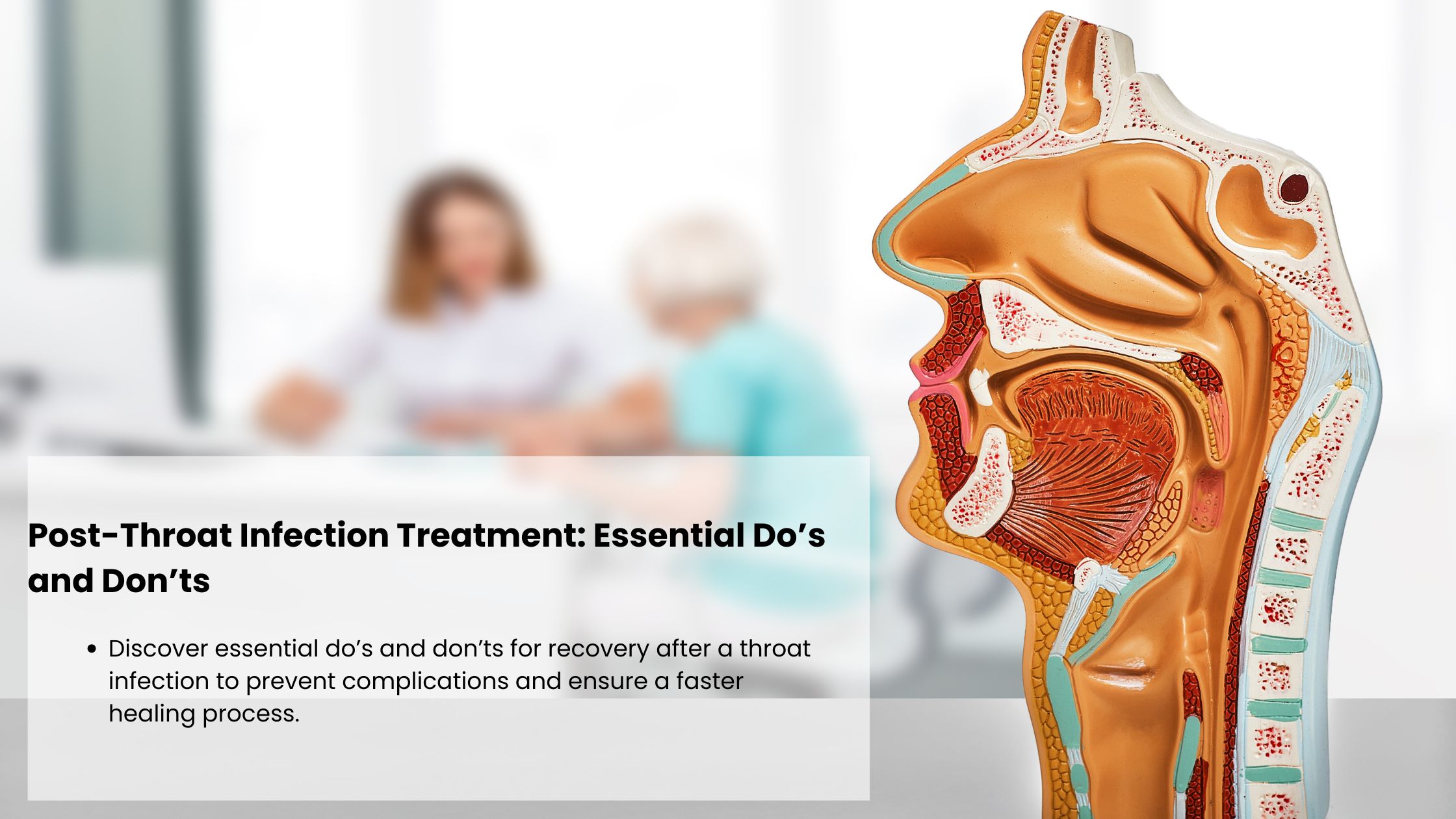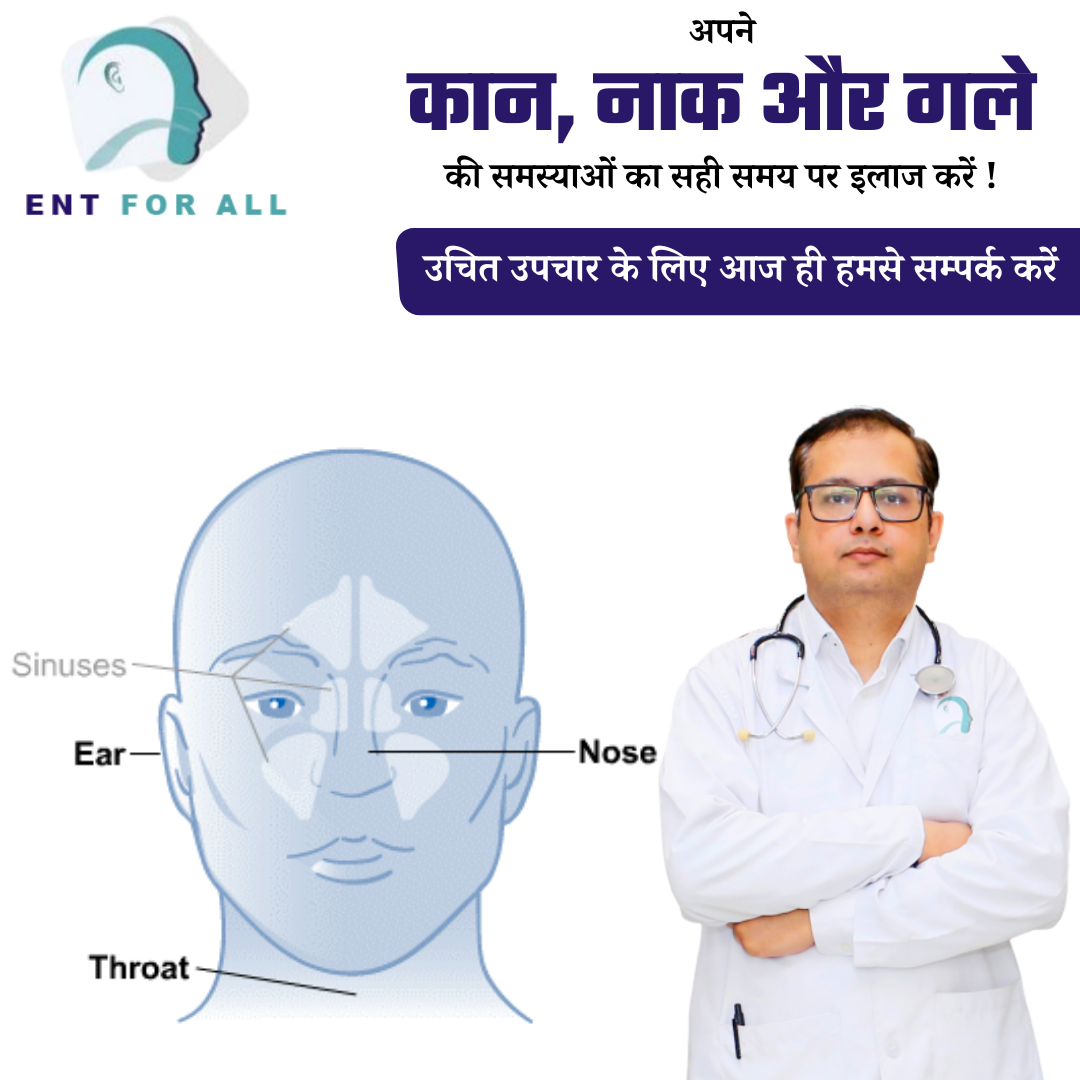In today’s life, neck pain is one of the most common problems because of the changing lifestyles of people. There are several reasons for neck and throat pain, which can last from days to years. It could be treated by different exercises and therapies depending on the severity of the pain. Some of the conservative treatment methods that are used before surgery are as follows:
- Medications to ease pain
- Exercises and physical therapy to improve muscle movement
- Heat and ice therapy
- Steroid injections
- Gels to reduce the pain and soft neck collars to provide support.

Mostly, neck and throat surgeries are not the first option, but if the condition is highly severe or chronic, then this method is preferred. It is very important for the person who is considering surgery to first know all the risks and post-surgery effects. If you are someone who is experiencing problems related to your neck and head, then you should visit- Best ENT Hospital In Udaipur, which is one of the best clinics for neck and throat surgery.
Dr. Sushant Joshi is one of the best ENT surgeons in Udaipur as he has performed hundreds of neck and head surgeries. He is highly skilled and experienced in his field. The main aim of our hospital is to provide effective and efficient neck and throat surgery. We have the most experienced and best neck surgery doctors in Udaipur.
Tests For Neck And Throat Problems
Some of the tests that are performed to determine the severity of the neck and throat conditions are as follows:
- Physical examination
- Endoscopy
- Microlaryngology
- Biopsy
- Imaging tests
Conditions That Required Surgery
Degenerative changes or injuries from any accident require surgery. These could cause bone spurs and herniated discs to form in the neck, which puts pressure on the spinal cord or nerves and results in symptoms like numbness, pain, and weakness. A few neck and throat conditions that require surgery are listed below:
Cervical myelopathy (Spinal cord compression): In this condition, compression of the spinal cord takes place. Some of the major causes of this condition are scoliosis, osteoarthritis, or injury due to an accident.
Cervical radiculopathy (pinched nerve): In this condition, high pressure is experienced by the nerve root region of the neck.
Cervical fracture (broken neck): This condition happens when one or more bones in the neck get fractured.
Tonsils: In this condition, surgery is only performed if the inflammation is too high and the person is experiencing difficulty swallowing or when the tonsils keep getting bigger and bigger, resulting in persistent pain.
Thyroid cancer: In this condition, the thyroid cells get transformed into cancerous cells.

Types of Neck and Throat Surgeries:-
The Tonsillectomy and adenoidectomy: Tonsillectomy involves the removal of tonsils that get inflamed or infected, resulting in tonsillitis. Sometimes it is performed in combination with adenoidectomy, in which adenoids are removed by the surgeon. Nausea and bleeding are the possible side effects of this surgery.
Thyroid surgery: It is performed to remove thyroid growth and thyroid cancer. It includes different surgical methods such as hemithyroidectomy, isthmectomy, thyroidectomy, and many more.
Disk replacement: In this procedure, the damaged disc that is present between the vertebrae is replaced with an artificial metal disk. It helps in relieving severe pain and also solves mobility issues due to the damaged disk.
Discectomy: It is a type of surgery that is performed to remove the damaged disc that is present between the vertebrae. It is recommended for those who have bone spurs, stenosis, or herniated discs. It is performed only in severe conditions, as recovery takes several weeks.
Cervical spinal fusion: In this type of surgery, two vertebrae are joined into one stable piece of bone. It is preferred in conditions where the neck area experiences any pain during movement or has instability in the affected area. It is only performed in the case of very severe or extreme cervical fractures.
In this, the surgeon makes the incision at the back and front of the neck, and then a bone graft is placed, which could come from either the doctor or the patient’s side. It is taken mainly from the hip bone. Metal plates or screws are also placed in it to provide support for the two vertebrae. The patient experiences loss or decline in movement or flexibility due to cervical spinal fusion.
Laminectomy: The main aim of this surgery is to relieve pressure on the nerves or spinal cord. In this surgery, the surgeon removes a cut at the back of the neck and the lamina, which is a bony and ridged area. Any bone spurs, ligaments, or discs which are causing the compression are also removed. It provides more space for the spinal cord but also makes it less stable.
Laminoplasty: It is the alternative method of laminectomy and also helps in relieving pressure on the associated nerve or spinal cord. The main difference in this type of surgery is that the surgeon makes a door-like hinge rather than removing the lamina. The main advantage of this surgery over laminectomy is that it preserves a little range of motion.
Artificial disc replacement (ADR): It is used to treat pinched nerves in the neck. In this, an incision or cut is made at the front of the neck and removes the disc which is putting pressure on the nerve. Metal or plastic is then implanted into the space. This surgery is not recommended for people who have severe neck arthritis, allergies to metal or plastic implants, osteoporosis, cancer, or rheumatoid arthritis.
Posterior cervical laminectomy: It is also one of the methods to treat pinched nerves. In this, a cut is made at the back of the neck region and the surgeon works on the lamina. They also remove the additional tissue or bone that is putting pressure on the nerve. It does not require spinal fusion and also allows more flexibility.
Risks
The major risks of neck surgery are as follows:
- Hematoma or heavy bleeding at the surgical site
- Infection in the surgical region
- Injury to the spinal cord or nerves
- Stiffness or chronic pain after surgery.
- Leakage or outflow of cerebral spinal fluid
- Plates or screws that have become dislodged or loose over time.
- It may also damage the arteries.
- Patients could face some trouble with doing basic things such as swallowing and breathing.
Seek expert neck and throat surgery consultation in Udaipur from the best ENT Surgeon in Udaipur, Dr. Sushant Joshi. Experience personalized care and advanced treatments.

















